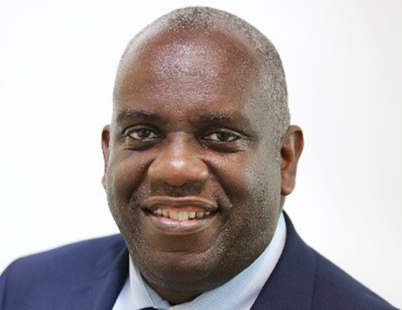For all its flaws, the Sewell report challenges simplistic narratives which frame a range of socio-economic inequalities as a direct result of institutional racism and systemic discrimination. This kind of reductionist thinking has no place in serious discussions on fairness and opportunity in modern-day Britain.
It is safe to say that the new government-commissioned report on race and ethnic disparities has caused quite a stir in Britain. The report authors, led by educational consultant Dr Tony Sewell, concluded that they “no longer see a Britain where the system is deliberately rigged against ethnic minorities” and that it “should be regarded as a model for other White-majority countries”.
Unsurprisingly, the report conclusions were not received well by Britain’s “race lobby”: an industrial-scale operation which brings together bad-faith actors who are financially and psychologically invested in peddling ultra-negative depictions of British society and its institutions—in both the public and private sectors. The Runnymede Trust, a leading “race-equality” think-tank, declared its staunch opposition to the report’s findings through an open letter signed by academics, politicians, journalists, and social activists; but the institution’s credibility when it comes to the race-relations debate has been called into question. Recently, the CEO of Runnymede Trust, Dr Halima Begum, accused the government of pursuing a divisive “white nationalist” agenda. The government can be accused of many things, but it hardly makes sense to suggest it is committed to forging a white ethno-state. After all, this is an administration with a Gujarati-origin Home Secretary, who recently created an immigration route for millions of Hong Kong residents wishing to flee from Chinese-state totalitarianism and start a new life in the UK. This does not strike me as white nationalism in action.
For all its flaws, the Sewell report challenges simplistic narratives which frame a range of socio-economic inequalities as a direct result of institutional racism and systemic discrimination. This kind of reductionist thinking has no place in serious discussions on fairness and opportunity in modern-day Britain. A myriad of influential social and cultural factors which feed into racial and ethnic disparities which have nothing to do with racism and discrimination. These include migratory background, family structure, and community culture. To brush determinants such as family dynamics and community norms under the carpet, when discussing social and economic outcomes for different ethnic groups, is a serious act of intellectual dishonesty. Indeed, much of current-day British Indian success is rooted in relatively low levels of family breakdown, strong forms of intergenerational cohesion, and healthy levels of female economic activity.
The Sewell report does overreach at times. While it asserts that the UK is the gold-standard example of a successful, white-majority, multi-ethnic democracy, usually Canada ranks higher on matters of political trust, social cohesion and national belonging. The “Great White North” has become a shining example of a diverse democracy with impressive levels of institutional trust and societal strength. A recent D-10 study of national resilience—incorporating the G7 nations plus Australia, South Korea, and India—placed Canada above the UK on a range of indicators such as public confidence in the democratic system of governance, trust in law-enforcement institutions, domestic altruism, and sense of national belonging. There is little evidence to support the view that Canada should look to the UK as the supreme race-relations model for White-majority, multi-ethnic countries.
As director of British Future, Sunder Katwala, correctly raised during a recent event held by London-based think-tank Policy Exchange, the government-commissioned report largely overlooks Britain’s mixed-race population. It is a fast-growing section of society where there are unique issues surrounding family instability, racial discrimination and mental-health outcomes. A recent poll by ICM Unlimited found that while 46% of the general population felt they had a “very stable” family life during their childhood, this figure plummets to just 14% for multi-racial people of White-Black parentage. In the wider general population, three in ten people report being dissatisfied with their life in Britain—with this rising to 55% for mixed-race people of White-Black parentage. These disparities are deserving of far greater exploration.
On the whole, however, the report represents an important step in the right direction in the British race-relations debate. While there are further improvements to be made, Britain has established itself as one of the most successful examples of a multi-racial democracy. But it has also gained the reputation for being a global leader when it comes to family breakdown. This is a serious problem, with research by the Centre for Social Justice showing that family structures can have a considerable impact on youth outcomes such as school attainment, mental well-being, and cognitive development. Therefore, it is not controversial to say that there has been an obsession with racial identity in the realm of equality policy. While it may be an inconvenience for those who wish to place race at the forefront in discussions on disadvantage, the evidence suggests that Britain’s social-policy agenda should have family stability at the heart of it.
Dr Rakib Ehsan is a British independent expert in social policy. He is of Bangladeshi and Uttar Pradeshi origin.

